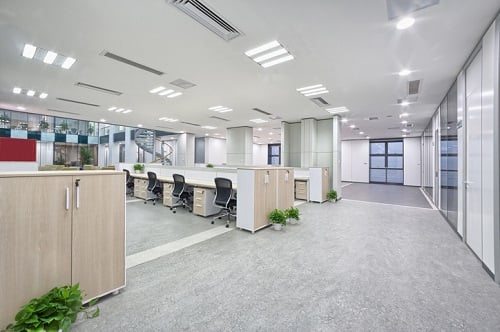With companies being forced to work remotely, many in the commercial real estate space believe this will accelerate the trend away from traditional long term leases

The impact of the COVID-19 pandemic on the commercial real estate space remains unknown, but investors and business owners are trying to understand and prepare for the changes that may take place.
This rings particularly true for the office space sector. While many offices sit empty as stay-at-home orders remain in place across the globe, companies are being forced to consider what the workplace will look like when the pandemic is over. In a time of uncertainty, less organizations are going to feel comfortable signing a 3- or 5-year lease for office-space, much less a 10-year traditional lease.
“Flexibility is really going to be an important factor once we start emerging from this uncertainty, whether it’s two days from now or two weeks from now, it’s going to be at the top of everyone’s mind,” said Jonathan Wasserstrum, chief executive officer and co-founder of SquareFoot, a commercial real estate tech company.
Once people begin making their way back to their offices, Wasserstrum says flexible space will continue to be extremely valuable because the problems that it solves will still exist, if not grow. Smaller companies with a staff under 10 still won’t want to sign long term leases, furnish an office space, or have to set up necessities like a printer, he added.
“We anticipate a significant uptick in organizations looking for private, flexible workspace as opposed to dense coworking offices,” said Bryan Murphy, chief executive officer of Breather, a private, flexible workspace provider. While working from home may become more recognized as a more viable option for companies post-pandemic, he adds that there is no suitable replacement for in-person communication. Because of this, coworking and other flexible office spaces will have to adapt. This includes more stringent and frequent sanitation and cleaning regimes, as well as limiting the number of people allowed in one space.
As far as the evolution of the office space sector, Murphy adds that many companies may continue to work from home, even fractionally, and may no longer need such a large HQ footprint. Instead, companies can look to flexible space where they only pay for the space they need, when and where they need it.
Wasserstrum shared a similar sentiment: “More companies are learning that they can adapt to remote workplaces. We are going to see an increase in satellite offices and more people in flexible space, as we move further away from traditional long-term leases.” With many companies having to layoff large portions of their workforce, he said many companies are going to be left with empty, unused space. PivotDesk, owned by SquareFoot, is a flexible office space marketplace that connects companies with excess office space to others who are looking for something specific, whether it’s a single desk in a shared office, or a portion of a coworking space. Breather specializes in private, flexible spaces where companies can take advantage of shorter lease terms but still have a space to call their own.
Interest in flexible office space has grown exponentially in the past decade, and many industry experts expected the boom to continue. Commercial real estate firm JLL had previously stated that the sector could account for 30% of the office markets in the US by 2030. Wasserstrum said as a result of the pandemic, he expects this trend toward flexible space to accelerate.
Murphy agrees: “At the beginning of the outbreak, before any stay at home orders were issued, we had increased interest in our office spaces as people wanted to be in their own space with their teams as opposed to coworking offices.”
In an effort to adapt to current conditions with social distancing, SquareFoot is offering virtual tours, so companies looking to move into flexible space can still see an online listing that they are interested in. Similarly, Murphy says Breather is seeing continued interest in their product as companies prepare for their return to offices.



